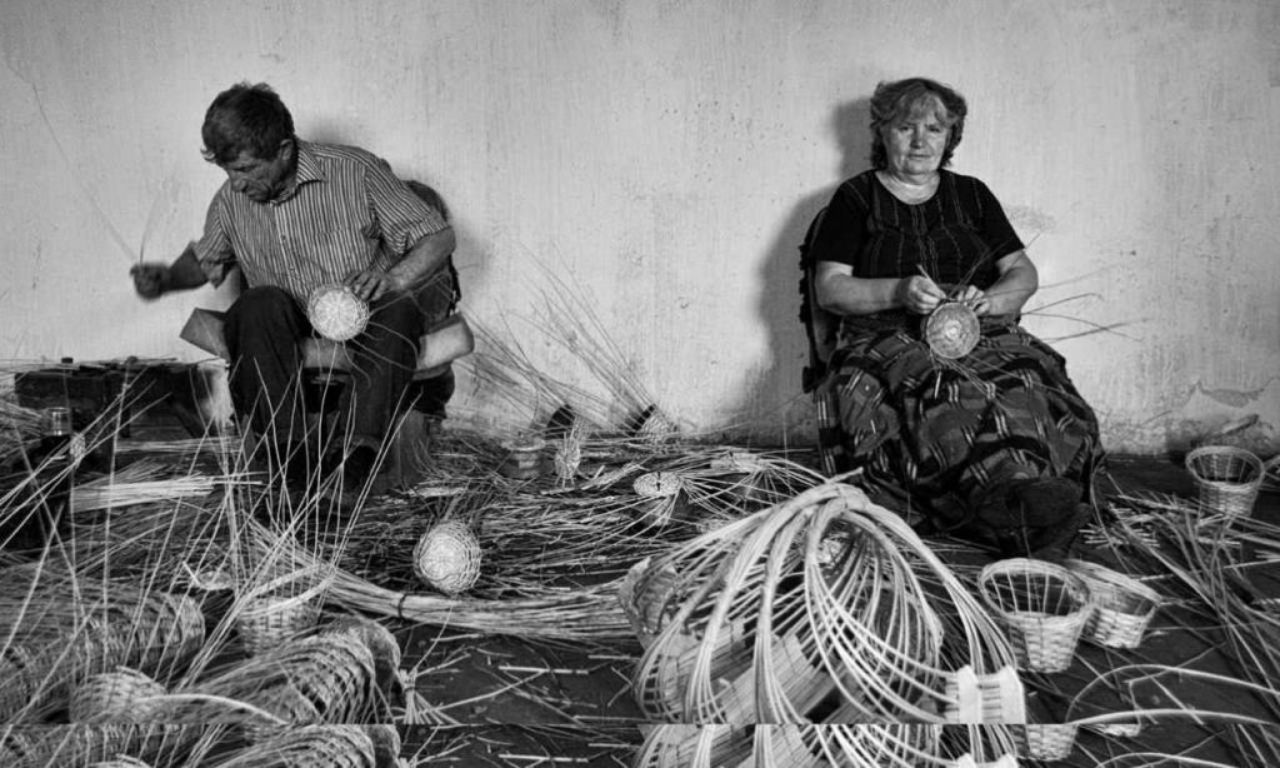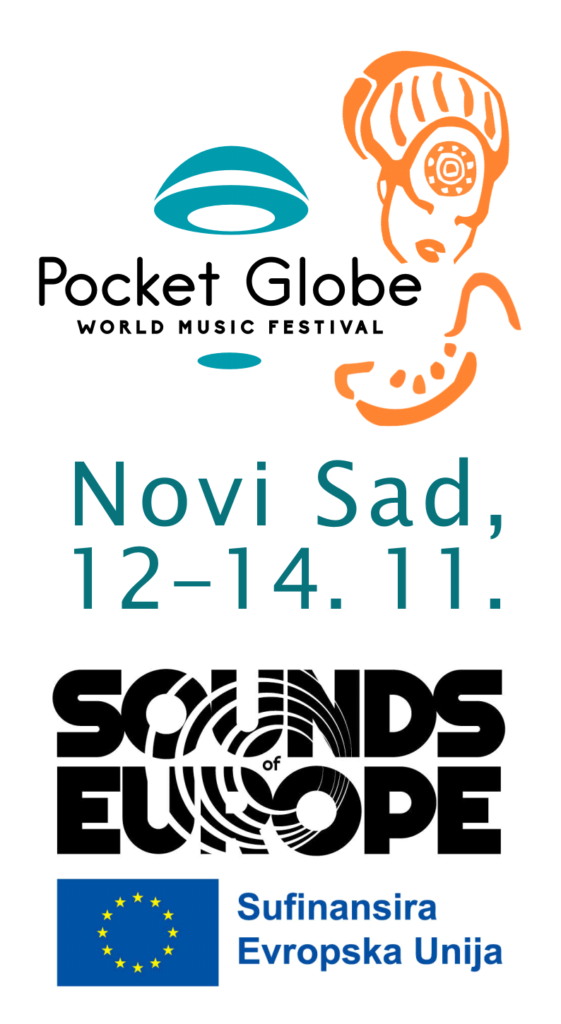Virtual kick-off conference „Establishing regional inventory of good practices of intangible cultural heritage related to natural resources along the Danubeˮ
held on March 9, 2021.
Source: WMAS/Report submitted by: Saša Srećković

Basket-makers Dragan and Mirjana Mijatović, village Šavac, municipality of Paraćin, Central Serbia (photo: Maja Stošić)
The program addressed some of the challenges previously identified following the devastating overall impacts of COVID-19 pandemic. As the field of (intangible) cultural heritage has been admittedly seriously affected, ICH in turn can be considered as a resource for relief, the way it was concluded by UNESCO expert meeting on ICH in emergencies back in 2019.
Among the ICH-related resources rarely tackled enough and generally speaking somewhat neglected – the project participants identified the knowledge and skills related to natural resources along the region of Danube.
The project also coincides with the goals of the EU regional policies that have already widely utilized and implemented the expertise of intangible cultural heritage and plethora of recognized implications of the 2003 Convention.
The following domains of public interest have been investigated: public health, food security, biodiversity, traditional culture/folklore, human rights.
To better conduct and direct the actions the participants decided to draw upon the experiences accumulated from the examples of good safeguarding practices as shown in the relevant UNESCO register.
This online meeting served to consolidate the findings so far on the development of the project proposal. Each of the partners from five participating countries (Austria, Slovakia, Romania, Bulgaria, Serbia) mapped the legal and institutional frameworks for the protection of ICH, compared the different national experiences, methodological approaches, as well as the respective projects and programs. The preparation of the program lasted from December 2020 to March 9, 2021.
The aim (the first phase of this project proposal) was to compare the legal and institutional frameworks for the protection of ICH in the Danube region, in order to recognize successful experiences in safeguarding ICH and especially sustainable development programs. The important objective of the project is to detect intersectoral capacities and resources needed for optimal conduct of this and kindred programs.

Miller Dušica Milivojević, village Krivi Vir (photo: Maja Stošić)
The incentive for program was launched by civil sector, i.e. Serbian NGO World Music Association of Serbia. Thereupon the program had been administered by the Ethnographic Museum in Belgrade/ Center for intangible cultural heritage of Serbia, together with its external associates.
Partners coming from five countries of the Danube region (individual experts – in total 8 UNESCO trainers for ICH, institutions and associations) also participated.
Support for the project was expressed by representatives of all embassies-partners in the project, and they took part in the conference. This phase of the project-in-creation was funded by the Austrian embassy in Belgrade.
The next phase of the project is the development of a joint working document (non paper) that will be submitted to all participants, as well as their embassies and governments (planned: mid-April 2021) to be used later to apply for forthcoming project calls.

Cooper Dušan Radovanović in his workshop in the village Striža, municipality of Paraćin (Central Serbia). PHOTO BY Maja Stošić
Towards The Danube Day (June, 29), we present to you the introduction from the completed document Non Paper, Project Proposal Establishing Regional Inventory of Good Practices on Intangible Cultural Heritage (Ich) Related to Natural Resources Along the Danube.
The document analyzis the minimum legal and institutional frameworks in the Danube region for the establishment of the network and specific activities that are recommended, and which will be translated into the next projects. All members included case studies from their countries in this document.
The special value of the document is in the development of a methodology that can be applied to any other complete region.
Download the introduction from the completed document >>
. . .














 Emisija je otvorena za sve muzičke događaje i ličnosti koje afirmišu izvorno muzičko stvaralaštvo. Ona okuplja istraživače, melografe, etnologe, etnomuzikologe i izvođače. Zaviruje u arhive i „muzejske eksponate”, oživljava legende, običaje, rituale – deo muzičke prošlosti koja i danas u tragovima živi u muzičkoj praksi pojedinih sredina. Prati promene varijanti izvornih pesama i njihovo putovanje kroz vreme.
Emisija je otvorena za sve muzičke događaje i ličnosti koje afirmišu izvorno muzičko stvaralaštvo. Ona okuplja istraživače, melografe, etnologe, etnomuzikologe i izvođače. Zaviruje u arhive i „muzejske eksponate”, oživljava legende, običaje, rituale – deo muzičke prošlosti koja i danas u tragovima živi u muzičkoj praksi pojedinih sredina. Prati promene varijanti izvornih pesama i njihovo putovanje kroz vreme.  Emisija je posvećena world music sceni, novitetima, trendovima, festivalima i novim albumima. U etru je od 2000. godine, a na Trećem programu Radio Beograda se emituje od 7. oktobra 2015. Emisiju uređuje i vodi poznavalac svetske muzike i organizator više festivala Bojan Đorđević.
Emisija je posvećena world music sceni, novitetima, trendovima, festivalima i novim albumima. U etru je od 2000. godine, a na Trećem programu Radio Beograda se emituje od 7. oktobra 2015. Emisiju uređuje i vodi poznavalac svetske muzike i organizator više festivala Bojan Đorđević.  Put svile, kao jedinstveno “radijsko putovanje”, do marta 2023. godine nedeljom je odvodilo slušaoce u neku od zemalja povezanih sa tradicionalnim Putem svile, uz aktuelna ostvarenja iz žanra “World music” i raritetne zapise tradicionalne muzike. Arhiva svih epizoda
Put svile, kao jedinstveno “radijsko putovanje”, do marta 2023. godine nedeljom je odvodilo slušaoce u neku od zemalja povezanih sa tradicionalnim Putem svile, uz aktuelna ostvarenja iz žanra “World music” i raritetne zapise tradicionalne muzike. Arhiva svih epizoda 
Trackbacks/Pingbacks